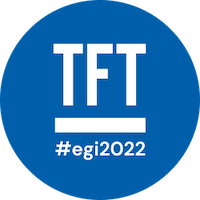Speaker
Description
Background – VIP (the Virtual Imaging Platform) is a web portal for medical imaging (MI) data analysis (Glatard et al. 2013). By leveraging computational and storage resources from the EGI e-infrastructure, VIP provides MI researchers with end-user services to run MI applications on this large-scale computing infrastructure.
Research Issue – Medical imaging is facing a reproducibility crisis: the increasing complexity of current data processing methods weakens our ability to produce the same results twice, by applying the same treatments to the same sets of inputs. Beyond the trivial influence of the data exploration process on any scientific result (Botvinik-Nezer et al. 2020), there is mounting evidence that computing environments (e.g., library calls, OS kernels, hardware infrastructures) also play a significant role by adding numerical uncertainty (Glatard et al. 2015). Relying on distributed computing resources, the VIP platform is highly concerned by potential versatilities in its digital outcomes.
Project Outline – The ReproVIP project, funded by the French National Research Agency (ANR-21-CE45-0024-01), addresses this reproducibility issue at every level of data analysis, from the exploration process to the computing environment. It is structured around two complementary goals: (i) evaluate the uncertainty of digital outcomes after EGI-based distributed computing, and (ii) enhance the numerical reproducibility of scientific results obtained through the VIP platform.
Available Options – To achieve numerical reproducibility at the computing environment level, we will explore a few different solutions. In addition to the already well-known containers, we also aim at using Guix – a GNU-based Linux distribution for advanced package management (Guix-HPC s. d.). To control the exploration process for MI data analysis, we are interested in the EGI-based solution that proposes Jupyter notebooks able to call EGI resources through the DIRAC framework.
Any relevant links
VIP Website :
https://vip.creatis.insa-lyon.fr/
Abstract References :
Botvinik-Nezer, Rotem, Felix Holzmeister, Colin F. Camerer, Anna Dreber, Juergen Huber, Magnus Johannesson, Michael Kirchler, et al. 2020. « Variability in the analysis of a single neuroimaging dataset by many teams ». Nature 582 (7810): 84‑88. https://doi.org/10.1038/s41586-020-2314-9.
Glatard, Tristan, Carole Lartizien, Bernard Gibaud, Rafael Ferreira da Silva, Germain Forestier, Frédéric Cervenansky, Martino Alessandrini, et al. 2013. « A Virtual Imaging Platform for Multi-Modality Medical Image Simulation ». IEEE Transactions on Medical Imaging 32 (1): 110‑18. https://doi.org/10.1109/TMI.2012.2220154.
Glatard, Tristan, Lindsay B. Lewis, Rafael Ferreira da Silva, Reza Adalat, Natacha Beck, Claude Lepage, Pierre Rioux, et al. 2015. « Reproducibility of Neuroimaging Analyses across Operating Systems ». Frontiers in Neuroinformatics 9 (avril). https://doi.org/10.3389/fninf.2015.00012.
Guix-HPC. s. d. « Reproducible computations with Guix ». Last consulted May 16th, 2022. http://hpc.guix.info/blog/2020/01/reproducible-computations-with-guix/.
| Topic | EOSC Compute Platform |
|---|

